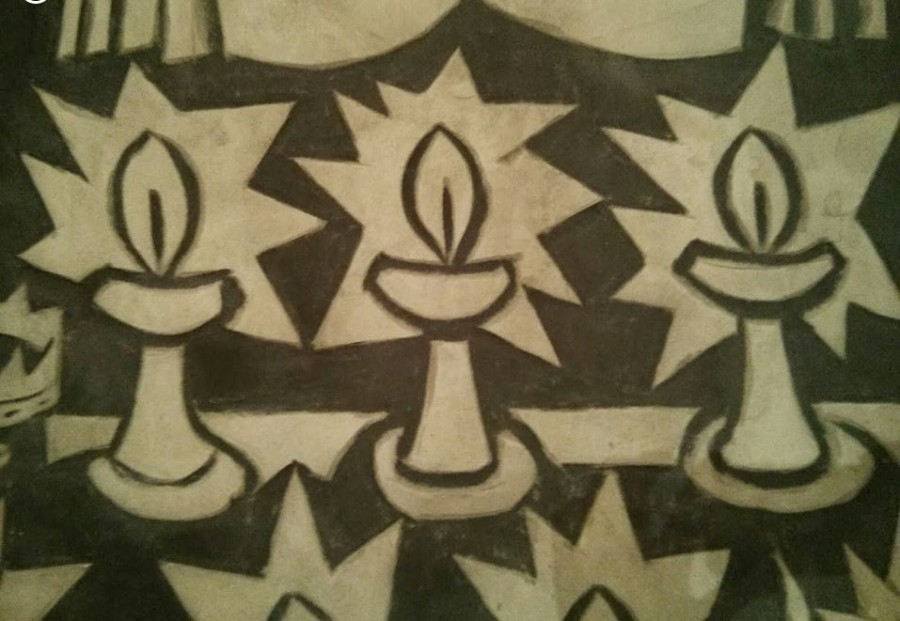The question is not whether we will die – but how we shall live

An address given by Fr Martin Boland at the St Francis Hospice “Light up a Life” Service, on the 2nd Sunday of Advent
Last year, I went to visit a man, a parishioner from the Cathedral here in Brentwood, who was in St Francis Hospice. I sat by his bedside. We prayed together and then enjoyed a bit of banter. He was a big West Ham supporter – in fact, he was wearing a West Ham top that day. I’m a casual Chelsea follower – don’t hold it against me. Needless to say he won the banter competition.
He mentioned he had been in some discomfort and I asked him “What have they given you for it?” There was a brief pause…a beat… and he looked at me, “They’ve given me hope.”
He was saying something very profound about St Francis Hospice, which you all represent. There is no medicine like hope, because it revives the soul of man. And hope is different from optimism. Optimism sees the world through rose-tinted spectacle and says that “things can only get better” and everything will turn out fine. But Hope sees the reality of life with an unflinching 20/20 vision and believes that life does make sense, that it does have a meaning, regardless of how it turns out.
Even in the most uncertain moments of life, St Francis Hospice gives people something to hope for – every act of kindness and welcome, every medical intervention that respects the dignity of the patient, every supportive word to a family, every joke, every hug, every tear is inscribed with hope.
Those who work in our hospices are ambassadors of hope and we owe them a huge debt of gratitude. They remind us that to live without hope is what really kills us. They teach us what is worth trusting and loving and what is waste of time. The question is not whether we will die, but how we will live and the hospice helps people to live, really live, to the end. St Francis Hospice is an embassy of hope and life.
Dame Cicely Saunders, the mother of the modern hospice movement, understood this. Recently, I watched a youtube clip of her speaking about the death of a patient, Antoni Michniewicz, whom she had fallen in love with. She admitted that his death was a heavy blow but it had also shown her that “as the body becomes weaker, so the spirit becomes stronger.” It was a line from Psalm 37 that inspired her to set up her own hospice: Commit your way to the Lord; trust in him, and he will act. Words of hope that she would translate into her life’s work.
The Christmas message is that there is a hope for humanity – hope of pardon, hope of peace with God, hope of a future glory that awaits us with God. The Word of God was really made flesh, really dwelt amongst us in our world of fear and doubt and suffering. He gave himself to us utterly: to do with him as we liked; and we chose to kill him. The cross is our guarantee that God is not fooling in his love for us. He really did want to be part of the reality of our fragile human lives.
And our Christmas joy is because God had such love for us; that he personally took all the consequences of being one of us, of being love in a world not very good at loving.
In St Francis Hospice we see, we feel, we almost taste something of that love in a world not very good at loving. “You matter because you are,” Cicely Saunders would say to her patients, “You matter to the last moment of your life, and we will do all we can, not only to help you to die, but also to live until you die.”
To say that at situation is hopeless, or that someone has no hope, would be to say that the human person has no value – to reduce us to biological accidents, things. But we are not things. We have a dignity. We have a future. We have a hope. There is no situation or person in St Francis Hospice that is hopeless. Every person who has ever stepped through the doors of St Francis Hospice comes to know that. They are given hope.
I was in Ireland during the summer when the great poet Seamus Heaney died. Just minutes before his death, he sent a two-word text to his wife, Marie. The words were: Noli Timere.
Two Latin words. Noli Timere. Don’t be afraid. Those words are God’s promise to us.
During the past week, somebody sent me via Facebook a fantastic photo of the work of an artist. He had painted on the side of a building in twenty-foot high letters: Don’t be afraid.
I immediately pressed SHARE and sent it to my sister. She has advanced, stage IV breast cancer. She wrote back
Love this, I’m trying to live by it.
And the truth is, we all are. Not just the sick, but all of us. And the truth is, places like St Francis Hospice help us to live by it. Do not be afraid.
And we light a candle to the dark, and the darkness and fear flinch and retreat…and we stand at the threshold of a new dawn, men and women of a beautiful hope. Noli Timere.
Tags: Advent, Christmas, death, featured, hope, hospice movement, life, St Francis Hospice

















“Love this, I’m trying to live by it.”
Thanks for this post Father Martin. It is something that I am also trying to live by and share with those I meet.